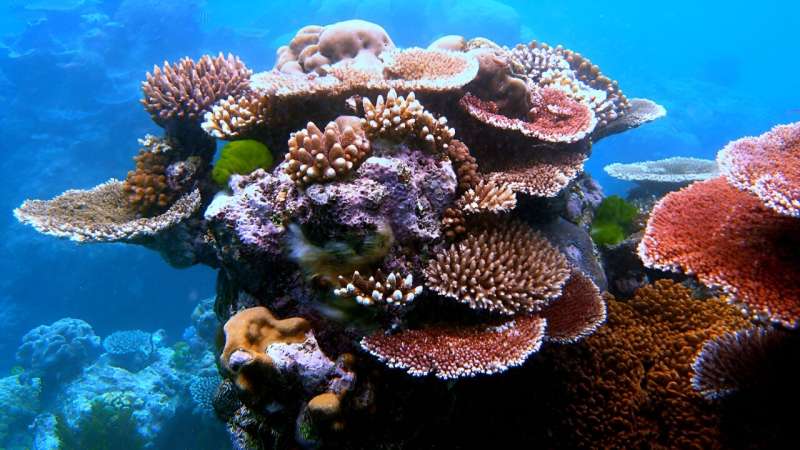This article has been reviewed according to Science X's editorial process and policies. Editors have highlighted the following attributes while ensuring the content's credibility:
fact-checked
proofread
Metals could reveal corals' past lives

Coral reefs worldwide face dire threats from ocean warming, increasing acidification, pollution, and other stressors. Understanding how corals respond to stress and how they evolved along with their environments is critical for designing interventions to protect reef ecosystems.
One way to study this is to examine the stable metal isotopes, such as iron, calcium, magnesium, copper, and zinc, found in various parts of corals, including their calcium carbonate exoskeletons. Like tree rings, these skeletons grow in layers and can serve as a record of health and environmental changes over time.
It is particularly useful to examine metal isotopes because they are used in many of corals' biological processes, such as nucleic acid metabolism, photosynthesis, and major ion transport. This makes these isotopes potential proxies for coral biological activity.
In a perspective paper, published in the Journal of Geophysical Research: Biogeosciences Xuefei Chen and colleagues provide an overview of how metal elements can offer insight into corals' biological responses to climate change and possibly provide directions for future research.
Previous studies have shown that skeletal calcium and magnesium isotopic ratios could be a proxy for temperature, whereas zinc and copper isotopic ratios might reveal insights into feeding conditions. But questions remain at both the biological and ecological levels. For example, how does metal isotope behavior differ between coral tissues and skeletons? How are other elements of the coral ecosystem, such as symbiotic algae, involved?
The researchers call for more comprehensive studies of the role of stable metal isotopes in corals and their surrounding ecosystems. This future work, they say, should include multidisciplinary collaborations across biology, geochemistry, and ecology and should span multiple levels of biological organization. Continuing experiments involving coral cultivation are also essential, as well as comparative studies with inorganically created calcium carbonate.
More information: Xuefei Chen et al, A Perspective on Probing Coral Resilience to Climate and Environmental Changes Using Stable Isotopes of Bio‐Utilized Metal Elements, Journal of Geophysical Research: Biogeosciences (2024). DOI: 10.1029/2023JG007656
Provided by Eos
This story is republished courtesy of Eos, hosted by the American Geophysical Union. Read the original story here.




















